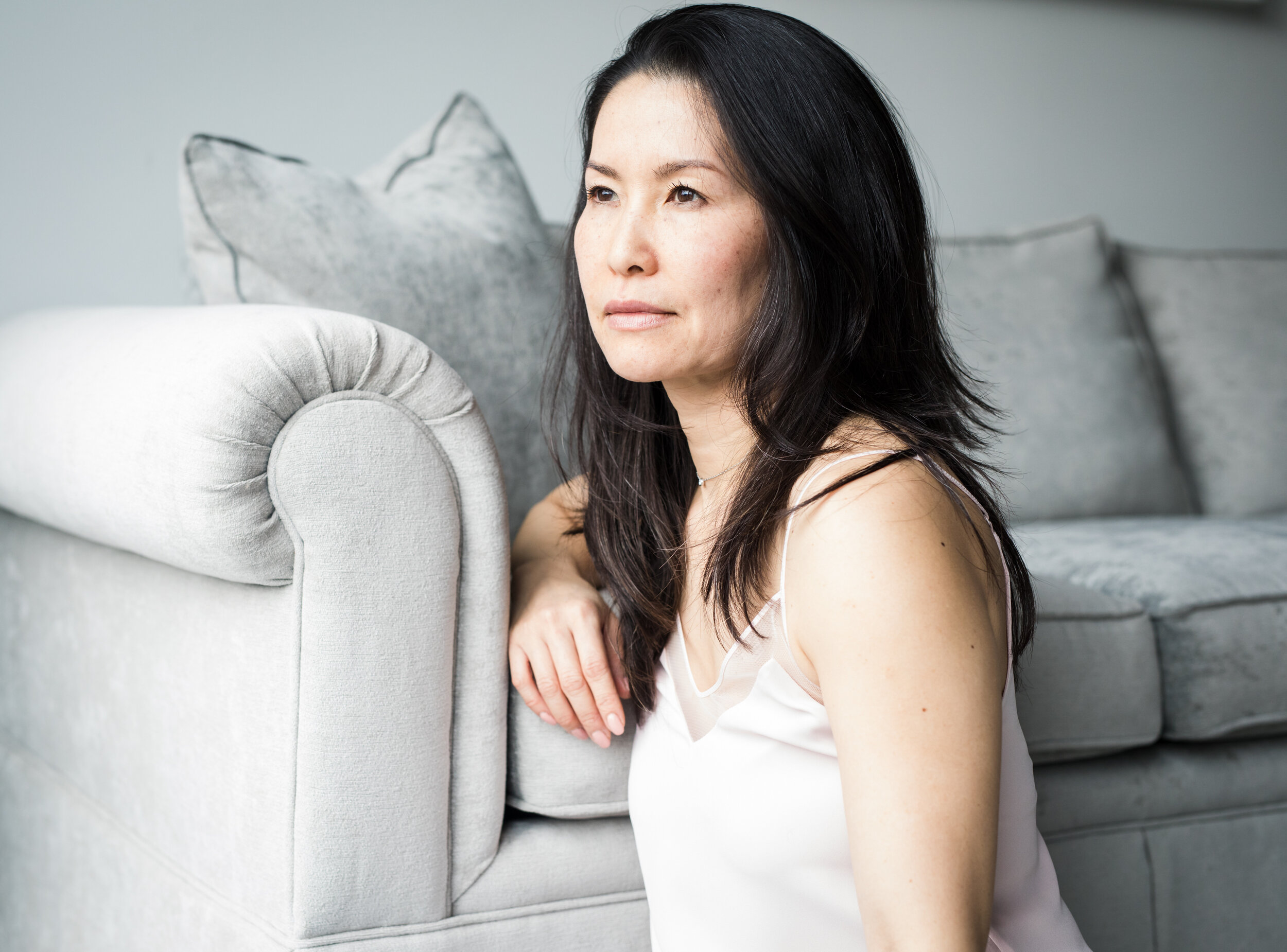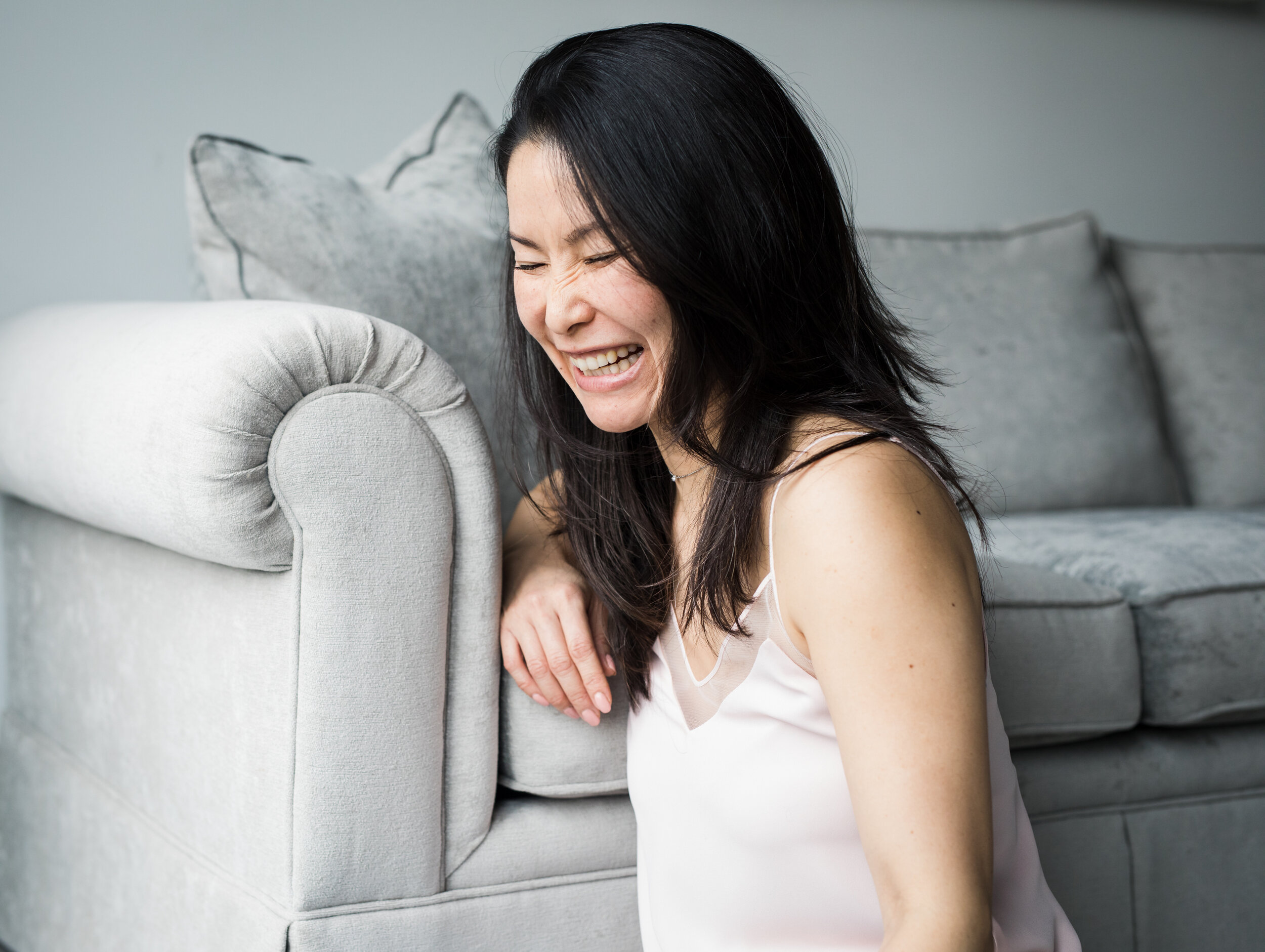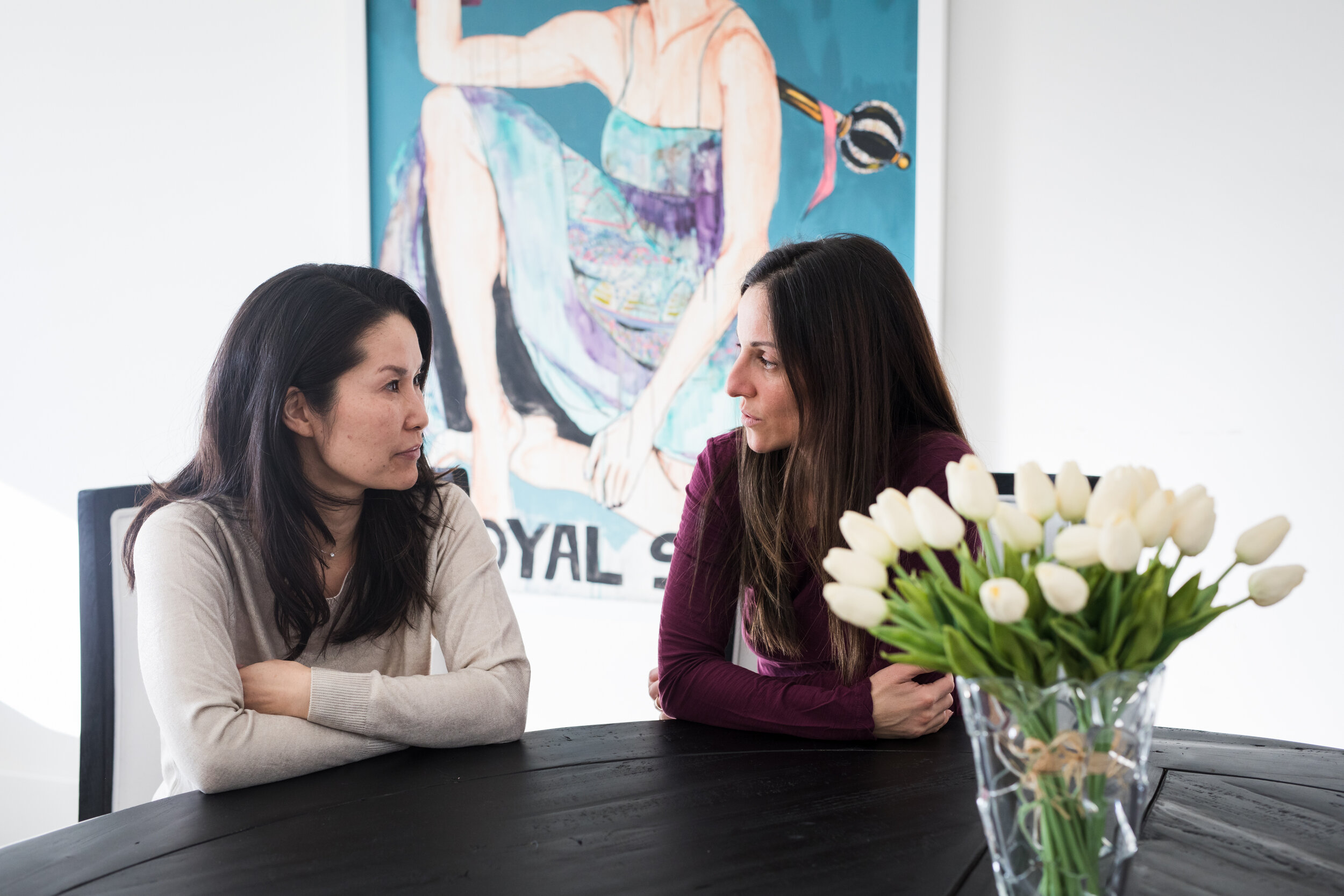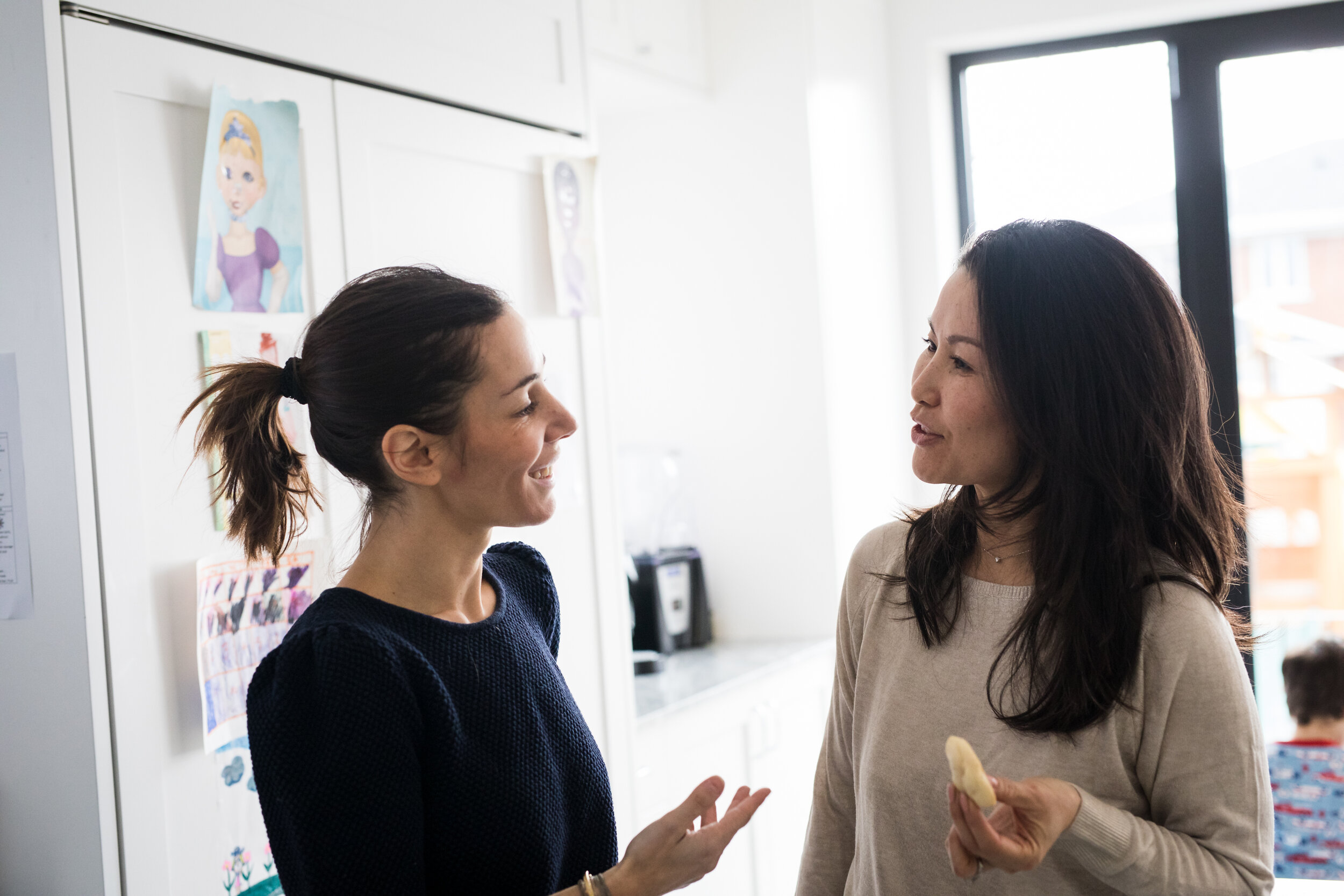Family Matters
Written by Alecs Kakon
Photos by Jen Fellegi
Growing up in a big family, there is ample opportunity for tense moments to arise. Lots of big personalities and conflicting value systems are at play, and finding a healthy rhythm in a home like the one I grew up in was, and still is, a work in progress. I’m second of four children. We are all close in age. I realized quite young that I wasn’t a fan—or I should say, I wasn’t that great—at communal living. It was hard for me to always go along with what was considered “good” for the family, because I just wanted to do my own thing. This resulted in self-prescribed isolation, rebellious outbursts, defiant behaviour, and general resistance to what I then believed was herd mentality. And, I wasn’t the only one. My siblings, at some stage or another, spent the large part of their spare time cooped up in their own rooms to get some much-needed alone time. The chaos of constantly being surrounded, living in the noise of someone else’s party, (sometimes that someone else was me), was just more than any one of us bargained for. That’s the thing about big families, they are kind of hard to manage. But, in our case, family culture emerged later in life and we have all bonded in a way that brings us together often (minus quarantine… or actually, even in quarantine!). We share a few fundamental values, one being that regardless of our own set of values and beliefs, we grew up together, we are family, and we’ve kind of got our own exclusive members-only club going on. We’ve cultivated a cultural climate that only we are privy to. Our shared culture is what makes our family unique. You’ve got to be one of us to get “it,” because “it” has taken over three decades to harmonize. There were tumultuous times, but we’ve created something beautiful; we may hold different values, but we have all come to realize that family is one of them. Sitting with Nae we talked about culture, family, and how finding a connection between the two has been a more difficult challenge than she had originally anticipated.
Nae was born in Kawasaki, Japan and at about three years old, her family moved to her father’s hometown of Matsue. Always fascinated by languages, Nae’s first experience with English was at the National School where she would exchange letters with visiting professors’ children so as to practice what she learned. Peaking her interest, her affinity for English eventually led her to her choice to move abroad for a short time to fully immerse herself in both the language and culture. Curious about what was outside of Japan, Nae observed the homogeneity of her country and knew that there was more out there that she had to explore. “I was only 20 years old and I had no idea all the crazy things I would live through, but I knew that there was a whole world out there and I knew that that was a powerful thing for me to experience. I remember opening a small book with a list of language schools in Canada,” Nae recalls. “I was flipping the pages and saw that in the West there was a large population of Asians, so I kept flipping more and more east until I reached Montreal. That’s how I made my decision to move here.” And it was just like that that Nae packed up and left the only life she knew behind.
It took less than two months for Nae to decide that a year was not enough, and so was the beginning of her lifelong commitment to Montreal. At the language school she attended in the city, Nae met her first husband, a young Chilean man whose family moved to Montreal to flee the Pinochet regime. Within one year, she moved into his family’s home. Within two years, they were married. Exposed to yet another culture, Nae had absorbed Spanish with the same zeal she had for English. A few new languages under her belt and fully integrated into a mixed, inter-cultural family, Nae was living what she had set out to experience.
Less than 5 years into their marriage, Nae realized that her then-husband was mixed up with the wrong crowd and getting into drugs. He had decided to move back to Chile for a while to straighten out, and when he moved back to Montreal, they got pregnant. But, as the story goes, it didn’t take long for him to get back to his illicit activities and cheat on Nae. “When I had my son, everything became clear to me and I knew I couldn’t keep doing this.” Nae called it quits and at 26, she moved out onto her own and lived as a single mom. Taking care of herself and finding her way, Nae adjusted to her new life with optimistic energy. On her own, she was able to give her son the support and love he needed, but the one thing she couldn’t give him was family. “I prepared myself for the option to move us to Japan so that my son could be raised surrounded by family, but I couldn’t bring myself to go back,” Nae remembers. “Luckily, my ex-husband’s family around and they were very involved in his life. So he always had a sense of community.”
It was by the time her son was about 8 years old that Nae met her current husband. He had moved to Montreal from France and had a son the same age as Nae’s who was living with his mother in Paris. Nae and her husband had a baby girl together when her step-son came to live with them from Paris at 14 years old. “It was hard to adjust to all the different habits of all the different members in one home. We all came from different places and had our own ways of doing things,” Nae explains. “There were conflicting characters and having it all happen under one roof was very rough for me.” Blended families have a unique set of challenges that I will personally never understand, but listening to Nae, what emerged was a lack of commonality; all different backgrounds, languages, perspectives and cultures living in close proximity, their home became a site of disharmony. “All I dreamed of us was having a unified family, all of us together doing things as a family,” Nae says. “But now, I’m struggling to find the meaning of family. I know that when there is a gap between the love you put out and the love you receive, things start to shake, but I have yet to find the balance that keeps things smooth.”
Confronted with trying to define the concept of family and bending it to fit her reality, Nae can say with certainty that for her, she’s always equated family with comfort; a space where one can feel calm. Although peace can be found in quiet moments, Nae is searching for the stillness in her heart that perhaps only reconceptualizing “family” will provide. With radical courage, Nae ventured out into the unknown, she built a home and nurtured a family made of many moving parts. Embracing the tense moments, Nae meditates on the belief that growth is underway. “I wish my boys will find their way and that all my children will feel a sense of belonging and community. It’s hard for me to figure it all out right now, but I know the answers are hidden inside me.”












